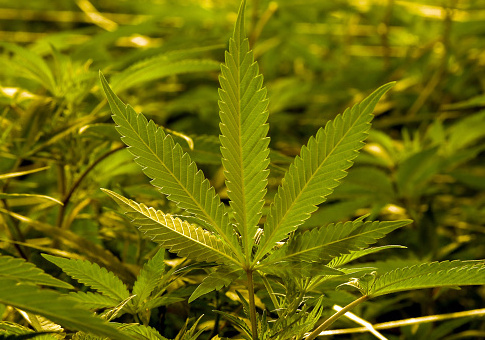Both houses of the Maine State Legislature voted Wednesday to overturn Gov. Paul LePage's (R.) veto of marijuana legalization legislation, putting the state on the path to finally implementing a 2016 referendum calling for legal recreational weed.
The Maine House voted 109 to 39, and the Maine Senate 28 to 6, to overturn LePage's veto, the Portland Press Herald reported. However, the paper projects that it will likely not be until the spring of 2019 before retailers can actually start selling recreational marijuana.
The next steps are regulatory: the Maine Department of Administrative and Financial Services will draft inspection and licensing rules for wholesalers and retailers, including those governing the collection of taxes. Once written, those rules will need to be approved by the state legislature when it reconvenes next January.
The state will also need to hire administrators to manage the new legal infrastructure, including a "seed-to-sale" tracking system for effective regulation.
LePage, a former Washington Free Beacon man of the year, has twice vetoed recreational marijuana legislation. He argued when making his most recent veto that recreational marijuana users will take advantage of the medical marijuana market in Maine, avoiding the taxes and other fees that the legislature intends to impose on recreational users.
Perhaps in part due to LePage's pressure, the final bill is more conservative than the one approved by voters in 2016, the Press Herald suggested. It only allows individuals to consume marijuana on private property, disallowing so-called cannabis social clubs which are more public. The number of plants any person can grow for personal use was also cut, from six to three, over fears of black market distribution.
Scott Gagnon, who runs an anti-referendum organization, told the Press Herald that the reforms were an "improvement" and "going in the right direction." His organization plans to assist those Maine towns that don't want legal marijuana sold within their jurisdictions.
Paul Armentano, deputy director of the National Organization for the Reform of Marijuana Laws, said in a statement that his organization is mixed on the outcome. While his organization supports the reforms, "it is unfortunate that lawmakers felt it necessary to amend and repeal other important provisions of Question 1… in what ultimately was futile effort to curry favor with the Governor."
"At the end of the day, this measure is far from consistent with the language that the majority of voters approved at the ballot box," Armentano said.
